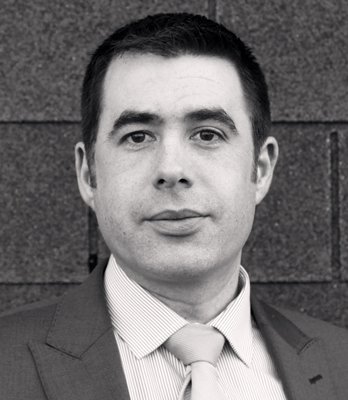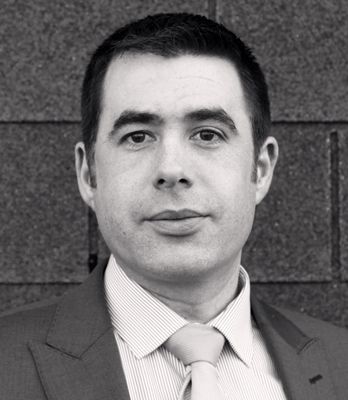IT OUTSOURCING FOR FINANCIAL SERVICES FIRMS
Published by Gbaf News
Posted on July 29, 2014
7 min readLast updated: January 22, 2026

Published by Gbaf News
Posted on July 29, 2014
7 min readLast updated: January 22, 2026

Entrepreneur and co-founder of Sentronex, Joe Sluys, speaks to Global Banking & Finance Review about IT outsourcing in the financial services industry.
Hi Joe, thank you for taking the time to speak with Global Banking & Finance Review. Can you tell us more about Sentronex and what you do?
Founded in 2005, Sentronex provides managed IT services to London’s financial community including IT support, Disaster Recovery (DR), consultancy, cloud computing, hosting and connectivity solutions. With multiple close proximity work area recovery sites as well as our own data centre in outer London, Sentronex is well placed to support a range of City-based clients from hedge funds and asset managers, to larger brokers and investment banks.

Joe Sluys
With over 90% of senior staff coming from financial IT backgrounds, our team has a true understanding of what our clients do and why, and the pressures they face. We know the products and solutions on the market that will benefit them and appreciate the impact technology has on both daily operations as well as long-term business strategy.
My business ethos is very much for Sentronex to go over and above what is typical of an IT services provider. We don’t deploy technology for technology’s sake nor do we offer off-the-shelf, packaged solutions – there is little place for that in the financial services industry. Sentronex promotes suitable, long term and tailored IT solutions and works with each individual client to ensure their infrastructure mirrors the needs and requirements of their business.
What are the prominent technology trends impacting the FS IT landscape today?
There is a heightened awareness of resilience in business operations in general. Growing concern about cybersecurity and the threats posed by cyber criminals and data hacking is certainly a part of this. While it impacts every industry, media coverage of data breaches in the FS sector are rising, as are the fines given out by the FCA. The risk is so great that no regulated firm can be left vulnerable.
From a technology and storage point of view, resilience and data protection is prompting FS clients to revaluate their data backup solutions. Traditionally, financial firms favoured backing up data to a tape drive despite the process being subject to human error and time consuming due to data replication issues. Previously though, the cost associated with offsite data transit and online storage was very high. However, today there is technology offering much faster, more cost-effective and scalable backup solutions like those in a cloud environment. This is altering the marketplace and changing the way financial firms approach backup processes. On top of this, there is the benefit of rapid file recovery with online backups which is integral to a firm’s business continuity and DR strategy. Even our most reluctant financial clients previously concerned about having business critical data online and offsite are recognising the security enhancing abilities of the cloud, pushing them to consider a dual approach to data storage, utilising both tape and the cloud.
This current focus on resilience is also highlighting the need for work area recovery as part of a Business Continuity Plan (BCP). If the unexpected happens and a business is unable to trade, it is paramount to re-establish operations as soon as possible; after all, downtime is very damaging to a firm’s reputation. The most effective way an FS firm can do this is to have access to alternative work place recovery. Sentronex is seeing a rise in demand for close proximity seating and as such, recently expanded our DR offering to deliver work area recovery in both Southwark and Canary Wharf.
What are the biggest pain points for your customers and how does Sentronex respond to this demand?
The financial technology sphere is ever-changing and it can be difficult to keep up to date and in the know with the latest technology. As an outsourced IT provider, we make this our business. In addition, regulatory change continues to be a cause for concern for nearly all UK-based FS firms. New legislation often means investment in a company’s infrastructure and the overhaul of processes. This brings with it cost. However, times of change are also good opportunities to carry out strategic reviews. We offer a financial IT consultancy service to clients wishing to audit, upgrade and streamline technical operations. This has seen FS firms actually reduce costs in the long run by up to 50%.
As an entrepreneur, what challenges have you faced, growing a business in today’s economy?
One of the toughest barriers I have experienced has been successfully growing Sentronex as an entrepreneur, without vast amounts of cash to invest. We have spent the past two years acquiring the right finance to support the business properly. Thankfully, we have been successful and done this with the help of high net-worth individuals and one very active corporate lender; we now have the platform to scale to welcome and support many more financial clients.
The other most difficult challenge faced by many businesses, especially the smaller ones, is related to the people. From my experience, having an intelligent, positive person in the office can be highly infectious. On the same note, if you employ a negative person, it can be very damaging. Finding the right people who can display high levels of care, integrity and willingness to work hard can be a challenging process. In the past, I can admit I have got it wrong but the important thing I have learnt is to deal with those problems when they arise.
In your opinion, what do you see for the future of IT outsourcing?
Traditionally, in-house departments viewed outsourced providers disfavorably, especially in the technology field. Combine this with 2012’s predictions that we would see a decline in IT outsourcing and it didn’t look good for the industry. However, latest 2014 research and published reports state it will be more prevalent than ever with a recent study published by KPMG reporting 77% of respondents planning to either continue or increase outsourcing in the immediate future.
With this change in attitude, we are seeing an emerging trend for a collaborative approach to IT outsourcing. Increasing numbers of new and existing clients are outsourcing IT on an ad-hoc, project-basis, gaining access to financial IT consultancy with the view to streamlining operations. The second way in and out-house teams are collaborating is via on-site, retained IT support arrangements where additional outsourced IT resources come on board to help fill any possible gaps in skill sets and cover holidays and sickness etc.
When a firm is choosing a provider to manage their IT services, what advice would you offer?
The whole point of outsourcing IT operations is to trust an external provider with your business’ infrastructure and technical processes. My advice would be to find a tech firm that really understands your industry, the needs of your business systems and platforms as well as the pressures you face for example, from the regulator. When a firm is running the appropriate technology to support its infrastructure, there can be considerable cost-savings.
The flexibility and scalability of solutions delivered is also important as is the relationship a firm can build with their outsourced IT firm. As mentioned, collaboration is the future so looking for a provider offering in-depth planning and consultancy processes as well as dedicated Account Management departments and excellent technical teams, will ensure a firm gets the most out of an outsourced IT arrangement.
And finally, check the provider’s track record; just like employing a person to join your team, you need to believe in an IT provider and in the services and resources they deliver. You need to know they won’t let you down.
Explore more articles in the Interviews category











